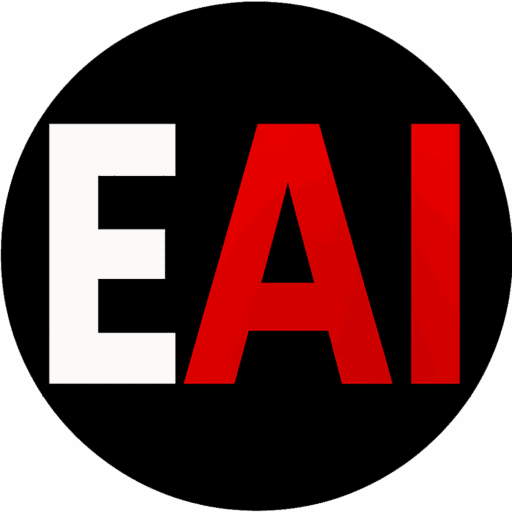20 August 2025
ChatGPT Plus users now have the option to connect their Gmail accounts and Google Calendar directly to ChatGPT, streamlining email management and scheduling tasks. This integration promises to significantly improve productivity by enabling advanced AI-powered features within ChatGPT’s interface.
To get started, simply link your Gmail and Google Calendar to your ChatGPT Plus account. This allows ChatGPT to assist you in managing emails, organising your schedule, and setting reminders with greater efficiency and ease. The process is straightforward and well-documented, ensuring users can quickly take advantage of these new capabilities.
While this integration is a major step forward for productivity, it also raises new privacy considerations. Users should be mindful of the permissions they grant and ensure they are comfortable with the data access provided to ChatGPT.
ChatGPT has rapidly become an essential tool for professionals seeking to optimise their daily routines. By leveraging the AI’s capacity to organise emails and appointments, users can achieve a more streamlined and effective workflow.
Privacy and Data Security: A Balancing Act
As with any integration involving personal data and AI, the balance between enhanced functionality and privacy remains paramount. By enabling access to their Gmail and Google Calendar, users must carefully review what permissions are requested and set boundaries accordingly. It is crucial to understand how data is processed, stored, and used, which helps in making an informed decision about the benefits versus the potential risks.
Companies providing such enhancements need to implement stringent data protection measures and communicate transparently with users. Regular security audits and compliance with data protection laws, such as GDPR in Europe, are essential to maintaining user trust. Additionally, offering users clear controls over their data, including options to revoke access or selectively grant permissions, helps ensure a user-centric approach to security.
Industry Trends: AI and Workflow Automation
The integration of ChatGPT Plus with Gmail and Google Calendar is part of a larger trend towards using AI to streamline professional workflows. Many companies are turning to AI solutions to automate routine tasks, allowing employees to focus on more strategic and creative work. The rise of natural language processing and machine learning has made these technologies more accessible, enabling broader adoption across various sectors.
Similar to how tools like Zapier have automated and connected web applications in recent years, ChatGPT Plus aims to achieve seamless interoperability between everyday tools. This not only boosts individual productivity but also promotes a culture of innovation within organisations, encouraging a more adaptive approach to task management.
User Experience and Future Possibilities
The convenience offered by this integration is set to enhance the user experience significantly. Users can expect a reduction in the time spent navigating between different applications, leading to faster decision-making and improved task execution. Furthermore, as the technology evolves, future updates may include deeper integration capabilities, such as real-time collaboration on projects or advanced predictive analytics for scheduling optimal meeting times.
This direction points to a future where AI not only assists but actively participates in managing daily tasks. The potential for further enhancements is vast, with the possibility of integrating with additional platforms or incorporating voice command features, thus making their digital assistant experience even more intuitive and interactive.
Key Data Points
- ChatGPT Plus users can now connect their Gmail and Google Calendar accounts directly to ChatGPT, enabling advanced AI-assisted email management and scheduling.
- This integration allows ChatGPT to summarise emails, draft replies, create calendar events from emails, and find suitable meeting times based on calendar availability.
- The linking process is user-friendly and well-documented, allowing quick access to enhanced productivity features.
- Privacy concerns arise as users permit ChatGPT access to personal emails and calendar data; careful review of permissions and data usage is essential.
- OpenAI and companies providing such integrations must ensure rigorous data protection, compliance with laws like GDPR, and offer users control over data access.
- This integration reflects a broader industry trend of using AI to automate routine professional tasks, freeing users to focus on strategic work.
- Future developments may include deeper integration features, such as real-time collaboration, advanced predictive scheduling, and voice commands.
- The feature rollout started with higher-tier users like Pro and is expanding to Plus, Team, and Enterprise plans, enhancing accessibility.
- The integration supports seamless interoperability, reducing time spent switching between apps, and promoting innovative workflow adaptations.
- Users should remain aware of the balance between functionality gains and privacy risks while leveraging these AI enhancements.
References
- ChatGPT — Release Notes (official OpenAI Help, confirms Gmail/Calendar integration rollout):
https://help.openai.com/en/articles/6825453-chatgpt-release-notes - How ChatGPT Works with Gmail: 2025 Integration Updates and Guide (setup tips, features, third-party tools perspective):
https://www.taskfoundry.com/2025/05/chatgpt-gmail-integration-2025-guide.html?m=1 - How to Use ChatGPT with Gmail in 2025 (practical tips and productivity guide):
https://autogmail.com/chatgpt-gmail - ChatGPT’s integration with Gmail and Google Calendar – New update explained:
https://www.datastudios.org/post/chatgpt-s-integration-with-gmail-and-google-calendar-the-new-update - How to Use ChatGPT for Gmail (2025 Video Guide, walkthrough):
https://www.youtube.com/watch?v=PxtlkuSyxwU

EfficiencyAI Newsdesk
At Efficiency AI Newsdesk, we’re committed to delivering timely, relevant, and insightful coverage on the ever-evolving world of technology and artificial intelligence. Our focus is on cutting through the noise to highlight the innovations, trends, and breakthroughs shaping the future from global tech giants to disruptive startups.

